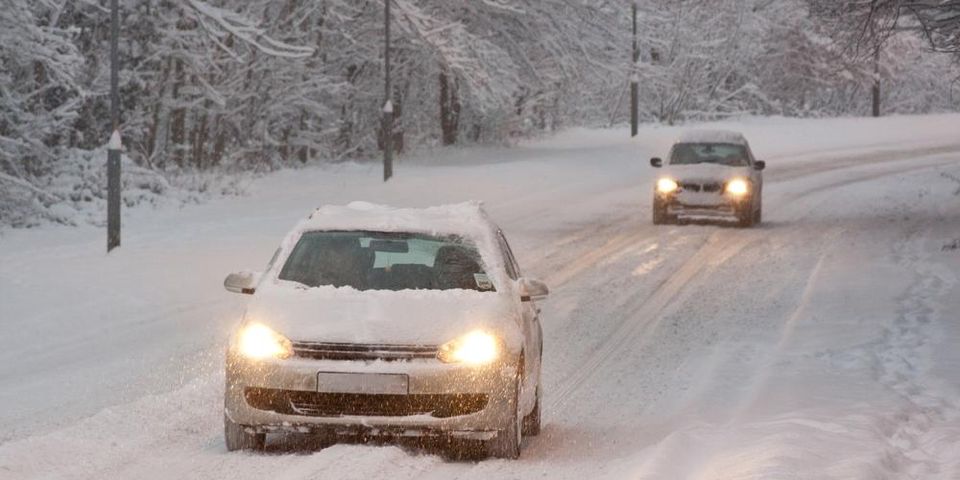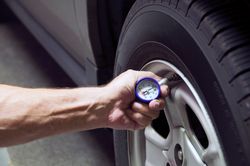Why Does Cold Weather Reduce Tire Pressure?

Waking up on a frosty morning to find your windshield coated with a thin sheet of ice is a common occurrence for car owners. But there’s another side effect of cold weather that isn’t as noticeable – low tire pressure. Here’s why chilly temperatures reduce your tire pressure and why you should always take steps to remedy the issue, such as seeking the assistance of a car maintenance professional.
How Low Temperatures Affect Tire Pressure & What You Can Do
Why Cold Weather Drops Tire Pressure
As the temperature falls, the volume of air in your tires is compressed. The air pressure (measured in pounds per square inch, or PSI) drops about one or two PSI for every 10 degrees in temperature drop. This is a natural process, so a tire pressure warning light on your dashboard doesn’t necessarily signal a leak.
As natural as it may be, it can still be unsafe to ignore the car maintenance issue. Although the tire pressure warning light might turn off as the temperature increases, there is a chance your tires might still be underinflated. The monitoring systems of your vehicle aren’t always completely accurate; the tire pressure indicator can sometimes be off by one or two PSI.
The Importance of Tire Pressure
 Driving with underinflated tires is unsafe for several reasons. With less pressure inflating the tire, more of the rubber surface will be touching the road with each rotation. This additional wear and tear can greatly shorten a tire’s life span, forcing an early replacement.
Driving with underinflated tires is unsafe for several reasons. With less pressure inflating the tire, more of the rubber surface will be touching the road with each rotation. This additional wear and tear can greatly shorten a tire’s life span, forcing an early replacement.
Underinflated tires also make the engine work harder to propel the vehicle, lowering the fuel efficiency. Lastly, tires with decreased PSI make it more difficult to control your vehicle. This reduced handling can lead to many dangerous situations on the road.
How to Handle the Issue
As with many car maintenance issues, keeping a watchful eye on the situation is important. If a low tire pressure warning light does illuminate, don’t assume the problem will sort itself out as the vehicle warms up. Instead, regularly check each tire’s pressure to make sure the PSI falls within the manufacturer’s recommended range. If tire pressure continues to be an issue, even when the weather is mild, schedule an inspection from a professional car maintenance service.
If you’re experiencing tire pressure problems, Ken Marcotte’s Professional Auto Service in Loveland, OH, is ready to help tackle the issue. With a team of knowledgeable and trained mechanics, the business takes pride in being able to diagnose and remedy a wide range of car maintenance situations. From tires to engines, the technicians will use professional technology and techniques to get your vehicle back in fantastic shape. Visit the website for more information on the services offered or call (513) 683-7852 to speak with a friendly individual today.
About the Business
Have a question? Ask the experts!
Send your question

